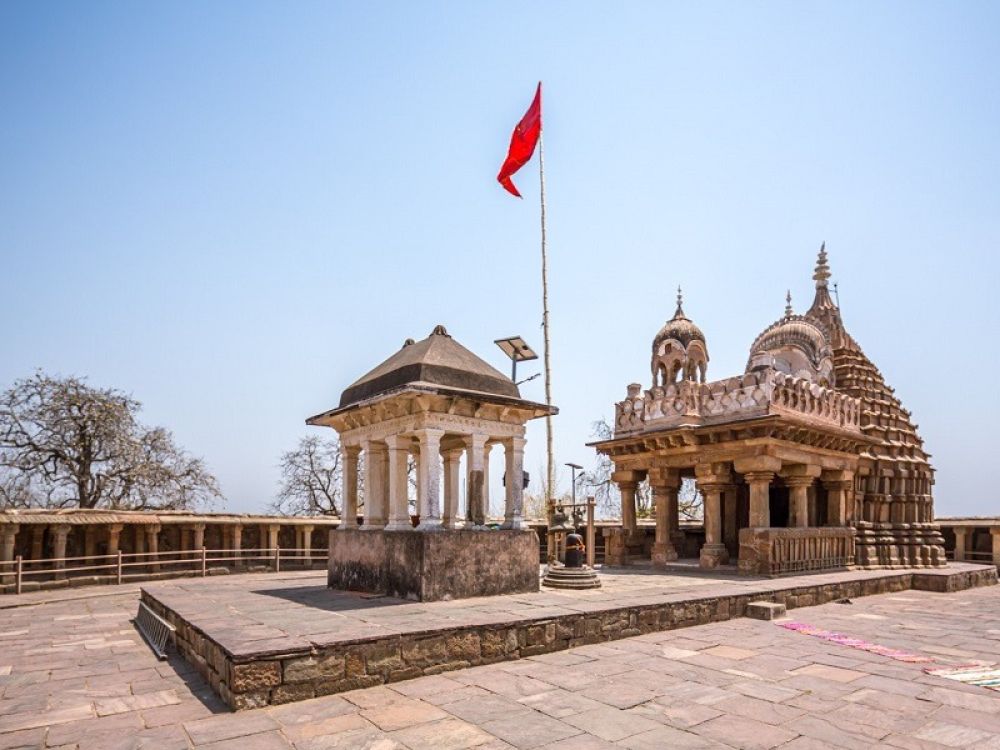

Nestled atop a hill near the Narmada River, the Chausath Yogini Temple is a revered ancient temple in Jabalpur, Madhya Pradesh, India. Steeped in historical and architectural significance, the temple is dedicated to the goddess Durga along with 64 yoginis, female attendants of the goddess. Its Sanskrit name translates to 'Temple of Sixty-Four Yoginis'.
Built in the 10th century AD, the temple is linked to the Kalachuri period. It is one of the few well-preserved yogini temples in the country, known for their unique circular layout. The temple, mainly made from local granite, has stood the test of time, surviving various historical epochs that have swept through the region. The Chausath Yogini Temple holds a special place in the cultural and spiritual landscape of India, attracting scholars and devotees alike.
Tourism at the Chausath Yogini Temple has grown over the centuries. Initially, it was a place of local pilgrimage, largely visited by devotees and yoginis practicing their spiritual activities. With the rise of historical interest in ancient Indian architecture and spirituality, the temple began to draw visitors from across the world. In the past decades, the site has seen an increasing number of tourists, turning it into a prominent destination on the cultural tourism map of India.
In recent years, tourism trends have seen a shift towards spiritual and heritage tourism, which has significantly benefitted the Chausath Yogini Temple. Travelers are increasingly seeking authentic experiences that provide a deeper understanding of local cultures and historical contexts. The temple's serene setting and intriguing architecture offer a perfect blend of spiritual and aesthetic enjoyment. Additionally, the Indian government's "Incredible India" campaign has paved the way for improved infrastructure and promoted awareness, further amplifying visitor numbers to historic sites like the Chausath Yogini Temple.
Those looking to visit the Chausath Yogini Temple should note that the temple is open year-round. Monsoon and winter months are especially favorable for a visit due to the pleasant weather conditions. Visitors can climb the series of steps leading to the temple, which not only is an exercise but also a way to absorb the panoramic views of the area.
Recognizing its historical value and allure as a tourist destination, the Archaeological Survey of India (ASI) has undertaken various measures to preserve the integrity of the Chausath Yogini Temple. This includes regular maintenance, managing the site to prevent overcrowding, and ensuring that the natural beauty surrounding the temple is not affected by tourism activities.
The combination of the temple's historical charm, surrounding natural beauty, and increased focus on heritage tourism makes Chausath Yogini Temple one of the must-visit destinations in Jabalpur, promising both a journey back in time and a spiritual retreat.